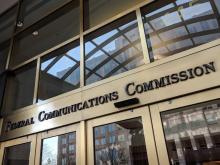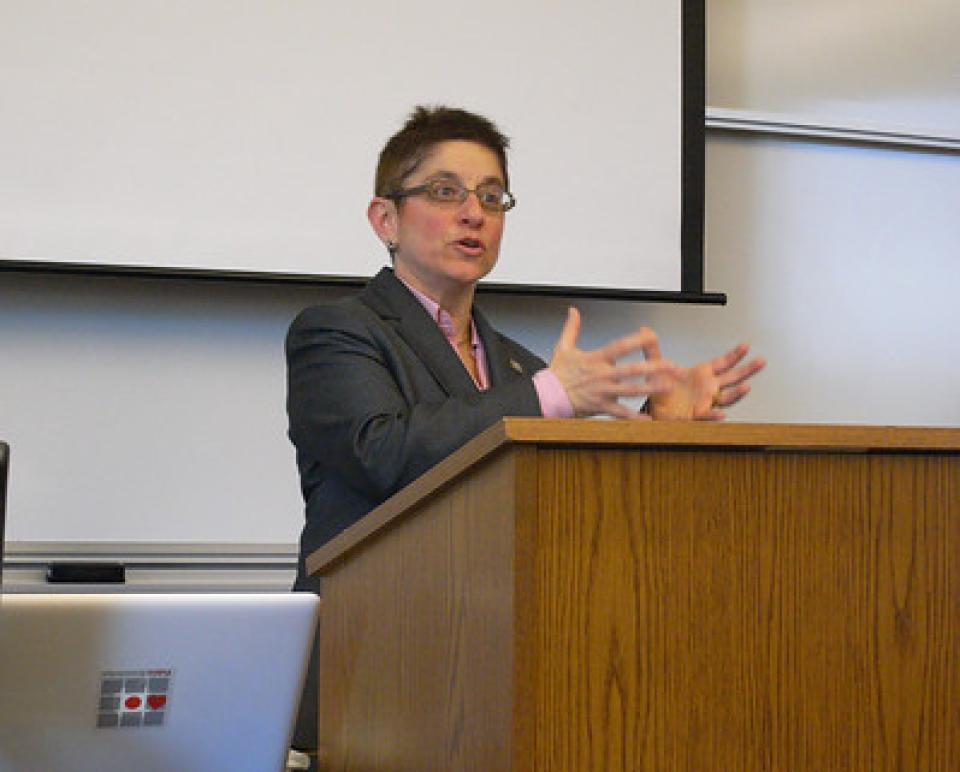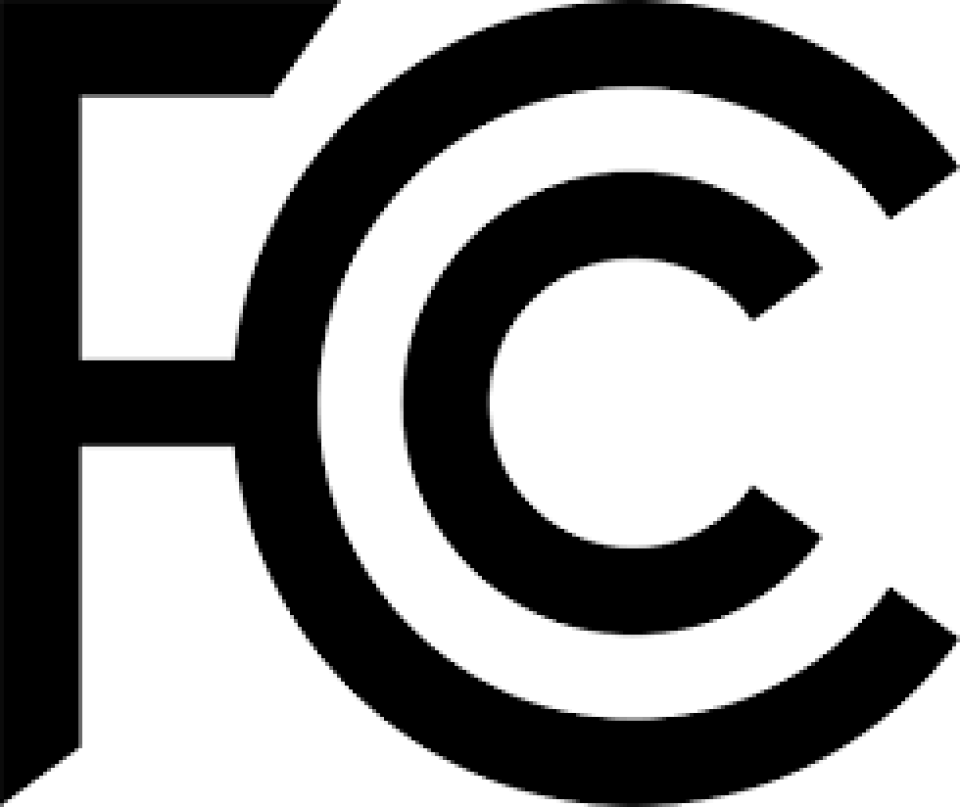
Fast, affordable Internet access for all.

For more than a year and a half, the nation’s top telecommunications regulator has been stuck in limbo, thanks to a combination of federal dysfunction and industry lobbying. Now the nomination of popular reformer Gigi Sohn to the FCC is facing a full frontal assault by telecom monopolies dedicated to preventing the agency from standing up to monopoly power.
After an inexplicable nine-month delay, President Biden nominated consumer advocate Gigi Sohn to the FCC late last year. Sohn, Co-Founder and CEO of consumer group Public Knowledge and a former advisor to FCC Chairman Tom Wheeler, is well versed in media and telecom policy, and broadly popular across both sides of the aisle.
Yet since her belated nomination, Sohn has been met with a bevy of telecom, media-industry, and politically constructed allegations designed to derail her nomination, ranging from false claims that she’d harm rural America, manufactured allegations that she hates police, and false assertions that she’s looking to censor conservative voices in media.
All of these efforts serve one function: to ensure the nation’s top telecommunications regulator remains mired in partisan gridlock and a 2-2 commissioner voting split. Without a clear voting majority, the agency can’t embrace reforms that are widely popular with the public, whether that’s restoring the FCC’s consumer protection authority, or restoring recently-discarded media consolidation rules.
It also prevents the restoration of net neutrality rules designed to protect consumers and competitors from the whims of telecom monopolies. A recent poll out of the University of Maryland indicates that a broad, bipartisan majority of Americans support the restoration of the rules, constructed under Sohn’s guidance during her tenure at the Wheeler FCC.
Sohn’s nomination battle is in the home stretch, and telecom policy experts warn that a gridlocked FCC and derailed Sohn nomination could also spell trouble for numerous other essential and popular policy efforts, ranging from the quest for more reliable broadband mapping data, to the equitable distribution of grants and infrastructure deployment subsidies.
“A deadlocked FCC will undermine the implementation and enforcement of the bipartisan infrastructure law that Congress passed,” EFF telecom policy expert and lawyer Ernesto Falcon told ILSR.
“If the FCC’s sitting four commissioners were to split their votes on a tie, the FCC will be unable to produce the broadband maps to release the NTIA funds to the states, nor will it be able to tackle low-income access through the new federal digital discrimination rule,” he added. “It’ll be an agency with great responsibilities and no power.”

You Can’t Fix A Problem You Refuse To Accurately Measure
The FCC has long been criticized for inaccurate broadband maps that overstate availability and speeds—and fail to even mention price. The FCC historically failed to consistently verify the accuracy of ISP data, and its methodology long declared an entire census tract “served” with broadband if local monopolies claimed to offer service to just one home in that entire tract.
After more than a decade of mounting complaints, things began to change thanks to the passage of the Broadband Data Act in 2020. The new law required that the FCC fix its flawed methodologies, do a better job verifying ISP-provided Form 477 data, and utilize numerous additional crowdsourced data sources to identify nationwide broadband coverage gaps.
The law not only gave the FCC greater authority to demand broadband mapping data, it created a new Section 801 within the Communications Act (47 U.S.C. 642), requiring the FCC to release a new broadband map using improved methodologies every 2 years.
But while the FCC says it’s making progress implementing those changes, the new maps won’t be completed until the end of the year at the earliest, well into the NTIA’s $288 million grant program—and the $42.5 billion Broadband Equity Access & Deployment (BEAD) program created by the Infrastructure Investment and Jobs Act (IIJA).
Harold Feld, Senior Vice President at Public Knowledge, warns that all of these efforts could be at risk without the Sohn nomination and a clear FCC voting majority.
The relevant provision of the IIJA (Sec. 60103) doesn’t require the FCC to publish the new maps by any specific deadline. The FCC has to determine how many unserved people are in each state so NTIA can distribute the money.
“If the Republicans and Democrats cannot come to an agreement on the new 2022 broadband map, the broadband map does not issue in 2022. Or 2023. Or until whenever the FCC gets a third Commissioner,” Feld notes.
No Maps Means No Money
Mapping methodology will significantly determine not only which areas get broadband, but the volume of money doled out to smaller broadband competitors. With incumbent telecom monopolies lobbying fiercely to keep this money out of the hands of new competitive entrants, Feld predicts such an approval vote could prove far more contentious than many are expecting.
“We are talking literally about the future of broadband and closing the digital divide here,” Feld notes. “This is not a vote likely to create a kumbaya come together moment where everyone sets aside their differences in the name of harmony.”
Sohn isn’t the type to step down due to the unfair attacks levied in her direction, and Feld and Falcon both note it would be impossible to replace her with a more industry-allied commissioner before the looming midterms.
As such, lawmakers pressured to shore up broadband gaps during the Covid-19 crisis by angry constituents may find themselves politically undermined by their efforts to derail the Sohn nomination—all of which, again, are based on the flimsiest of pretenses covertly manufactured by broadband and media giants.
“This is not, of course, much of a problem for the giant ISPs lobbying hard to keep Sohn off the Commission,” Feld wrote. “For them, the BEAD program is more of a threat than a money maker, since the money will go to places the largest ISPs don’t want to serve.”

Entrenched telecom monopolies have been well served by existing regulatory and market dysfunction. Not only do substandard maps allow the sector to obfuscate broadband coverage and competitive gaps, the industry has relied on them to issue costly and unnecessary challenges to local communities and competitors applying for NTIA funding.
Simultaneously, incumbent monopolies have been lobbying state legislatures to pass a variety of state laws restricting the flow of grant money to local community broadband efforts, despite the fact this is specifically prohibited by existing NTIA rules.
“While giant ISPs might like some of that money, it is far more important to them to keep potential new entrants or existing potential competitors from getting the money anywhere close to where the established ISPs offer service,” Feld said.
Entrenched monopolies appreciate that the FCC’s broadband availability map all but hallucinates competitors and available speeds, and have routinely fought against meaningful mapping reform that would highlight market failure. By contrast, states, cities, municipalities, and smaller providers alike all want broadband maps more reflective of everyday reality.
This tension has long resulted in partisan gridlock as lobbyists work to maintain the status quo by encouraging partisan infighting, and Feld finds it unlikely that’s going to change during upcoming FCC mapping votes. As such, “the vote to produce the 2022 broadband map will be along party lines and thus need a 3rd Democrat,” he predicts.
With Sohn’s nomination process in its final stretch, the telecom lobby is currently targeting vulnerable Democratic Senators in Nevada, Arizona, and West Virginia in the hopes of derailing Sohn’s confirmation. That has included using former North Dakota Senator Heidi Heitkamp to spearhead a group falsely claiming Sohn would be a major detriment to rural America.
Again, Sohn has broad bipartisan support because she’s a genuine reformer, focused on tackling issues like media consolidation and unchecked monopolization. That’s a major problem for telecom monopolies and their congressional allies, who have spent a generation protecting a very broken yet very profitable status quo under the cover of manufactured partisan infighting.
Header image via Flickr user Rob Pegoraro, CC BY-NC-SA 2.0 CC
Inline image of Sohn via Stanford Senter for Internet and Society Flckr, CC BY-NC-SA 2.0
